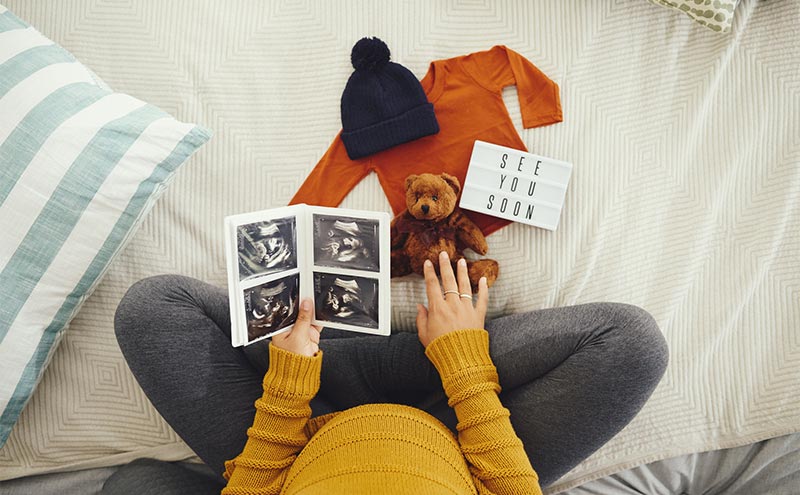
A Family of My Own
I was 34 when my gynecologist broke the news. She’d sent the test in an effort to encourage me to move on from my then-boyfriend, a divorced father of two who waited until well after we’d said “I love you” to tell me that he didn’t want more kids.
I was there for my annual exam and had floated the question roiling in my mind with a calculated casualness. “What if I can’t get pregnant, anyway?”
She signaled for me to scoot down the requisite two-more-inches and put my feet into the stirrups. “Why did your mind go there?”
I stared at the ceiling, trying to ignore the pinch of cold metal on my cervix. A nebulous fear of infertility, fueled by so many other women’s horror stories, had been gnawing at me for a couple years, ever since I’d passed the deadline in my mind (32) by which I was absolutely, without a doubt, supposed to have been married.
“Doesn’t having MD at the end of your name automatically predispose you to fertility issues?” I asked.
She laughed. No, she assured me, it didn’t.
Then she made a suggestion. Why not check my anti-Mullerian (AMH) level? It would surely be normal, and thereby prove I was free to find myself another fish in that vast and mythical sea of potential baby daddies.
I agreed to the test. My blood was sent. My boyfriend showed up for our date later that same night carrying two grocery sacks filled with all my stuff and a poorly conceived break up speech.
A few days later, my AMH came back low. Extremely low.
What kicked off was 5 years of obsessive rumination over never getting to have kids. Every date I went on was a screening interview for the role of Future Father. Every man I encountered—the guy who smiled politely while squeezing avocados at Whole Foods, the attentive barista who complied with my request to halve the syrup in my latte—was a missed opportunity to make a baby. And this high stakes game of “Are you The One?” played out exactly like anyone would have predicted: I lost.
At 39, fearing my eggs were completely rotten and hitting a true low in my hopes for my future, I finally decided to take matters into my own hands.
Anyone who has experienced infertility knows the singular nature of the pain that accompanies this condition. It’s a constant, smoldering pit of coals that glows red every time a pregnant woman crosses your line of sight or yet another friend posts a baby announcement on Facebook. A film descends over your life, quietly isolating you, changing the color of light, dampening everything.
The isolation is magnified when you’re a single woman. There was choosing a total stranger out of a book of strangers, most of whose faces I wasn’t allowed to see, to make up half of the genetic material of my theoretical future child. There were weeks and weeks of giving myself IM shots in my own butt. There was the nurse at my fertility clinic who asked me, on two separate visits, what my husband’s sperm count was, and the sideways comments people would make.
The cost of trying to have a child on my own was staggering. And I’m not even talking about the finances, which were, obviously, substantial. This decision cost me every single belief I’d previously held about what a family looks like and what I could and couldn’t do on my own in the world.
Choosing to have a child was the hardest, most uncomfortable thing I’ve ever decided to do, and, once the decision was made, there were disappointments at every turn. But my commitment to myself and to finding my own happiness grew bigger than I ever knew it could. I found that I had grit I didn’t know I’d had before, and it grew tougher and deeper with each successive step I took.
I’m 43 now. My daughter just turned 3. She has my cheekbones and nose, but someone else’s eyes and smile. She calls me “Mommydaddy.” She grows bigger every day. And with her, so does my heart.
By Shana Kusin, MD



